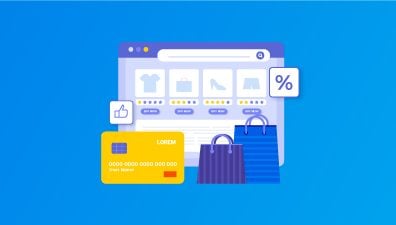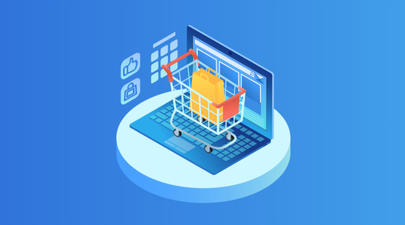Omnichannel marketing platforms have emerged as essential tools for businesses looking to execute effective omnichannel strategies. These platforms offer a comprehensive suite of tools and capabilities designed to streamline marketing efforts and deliver consistent messaging across various touchpoints.
In this comprehensive guide, we will delve into the world of omnichannel marketing platforms, exploring their significance in today’s digital age and how they empower businesses to create personalized and engaging experiences for their customers. From understanding the fundamentals of omnichannel marketing to evaluating the key features of leading platforms, this guide aims to equip businesses with the knowledge and insights they need to navigate the complex landscape of modern marketing.
Table of Contents
- Understanding Omnichannel Marketing
- Types of Omnichannel Marketing Platforms
- 10 Omnichannel Marketing Platforms for your Business
- Key Features of Omnichannel Marketing Platforms
- Factors to Consider When Choosing an Omnichannel Marketing Platform
- Tips for Implementing Omnichannel Marketing Platforms
- Conclusion for list of the best Omnichannel Marketing Platforms
Understanding Omnichannel Marketing
In the ever-evolving landscape of digital marketing, one term that has gained significant prominence is omnichannel marketing. This strategy represents a holistic approach to reaching and engaging customers across various channels, seamlessly integrating online and offline experiences. At its core, omnichannel marketing revolves around the idea of providing a consistent and personalized journey for customers, regardless of how they interact with a brand.
Explanation of Omnichannel Marketing Strategy
Omnichannel marketing is more than just a buzzword; it’s a strategic framework that aims to create a unified brand experience across all touchpoints. Unlike multichannel marketing, which involves using different channels in isolation, omnichannel marketing focuses on aligning these channels to deliver a cohesive and integrated experience.
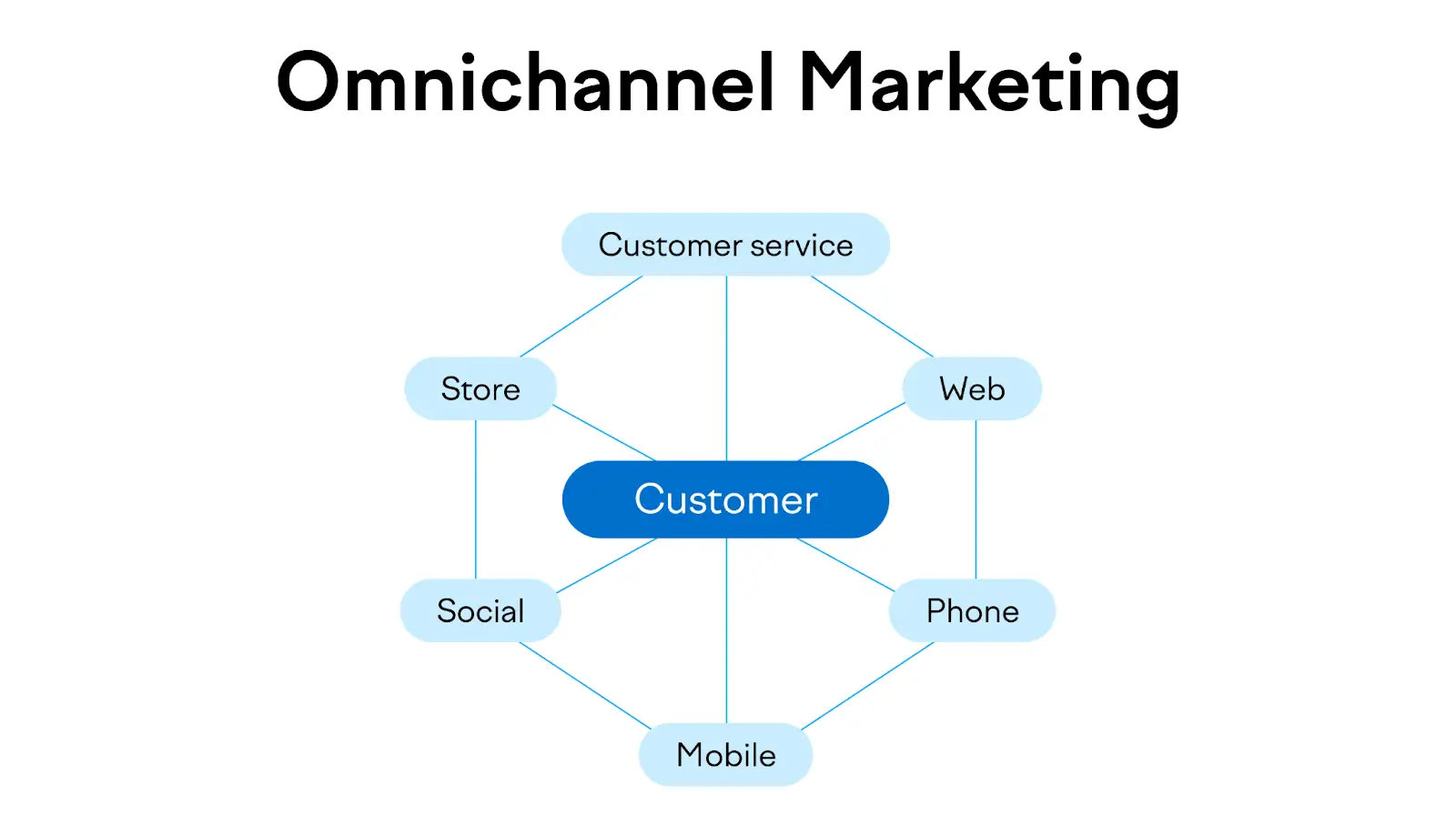
At its essence, omnichannel marketing involves leveraging data and technology to understand customer behavior and preferences, enabling brands to deliver relevant and timely messages across channels. Whether it’s through email, social media, mobile apps, or physical stores, the goal is to provide customers with a seamless journey, allowing them to transition effortlessly between channels as they interact with the brand.
Benefits of Implementing Omnichannel Marketing for Businesses
The benefits of implementing an omnichannel marketing strategy are manifold and can have a significant impact on a business’s bottom line. Here are some of the key advantages:
- Enhanced Customer Experience: By providing a consistent and seamless experience across all channels, businesses can enhance customer satisfaction and loyalty. Customers appreciate the convenience of being able to interact with a brand wherever and whenever they choose, leading to higher engagement and repeat purchases.
- Improved Targeting and Personalization: Omnichannel marketing platforms enable businesses to collect and analyze data from various channels, allowing for more targeted and personalized marketing campaigns. By understanding customer preferences and behaviors, brands can deliver relevant content and offers, increasing the likelihood of conversion.
- Increased Sales and Revenue: A well-executed omnichannel marketing strategy can drive sales and revenue growth by optimizing the customer journey and removing friction points. By guiding customers seamlessly through the purchase process, businesses can capitalize on opportunities to upsell and cross-sell, maximizing the value of each transaction.
- Greater Brand Visibility and Awareness: By maintaining a presence across multiple channels, businesses can increase their brand visibility and reach a wider audience. Whether it’s through social media, search engines, or offline channels, omnichannel marketing allows brands to stay top-of-mind and attract new customers through multiple touchpoints.
- Data-Driven Insights: Omnichannel marketing platforms provide businesses with valuable insights into customer behavior and campaign performance. By analyzing data from various sources, businesses can gain a deeper understanding of their audience, identify trends and patterns, and make informed decisions to optimize their marketing efforts.

Overall, the implementation of omnichannel marketing can position businesses for long-term success in today’s competitive marketplace. By prioritizing customer experience, personalization, and data-driven decision-making, businesses can create lasting connections with their audience and drive sustainable growth. In the next sections of this guide, we’ll explore the leading omnichannel marketing platforms and how businesses can leverage them to achieve their marketing goals.
Types of Omnichannel Marketing Platforms
When it comes to implementing an effective omnichannel marketing strategy, businesses have several options to choose from. From all-in-one solutions to channel-specific platforms and custom-built solutions, there’s a wide range of omnichannel marketing platforms available to cater to diverse business needs.
The choice of omnichannel marketing platform depends on various factors, including the size and scope of the business, the specific marketing objectives, and the available resources and expertise. Whether it’s an all-in-one solution, a channel-specific platform, or a custom-built solution, businesses have a wide range of options to choose from to execute their omnichannel marketing strategies effectively. Let’s explore each type in detail.
All-in-One Solutions
All-in-one omnichannel marketing platforms offer a comprehensive suite of tools and capabilities designed to support various aspects of omnichannel marketing. These platforms typically integrate multiple channels, such as email marketing, social media, SMS, website, and mobile apps, into a single unified interface. They provide businesses with a centralized platform to manage all their marketing activities, from campaign creation and audience segmentation to performance tracking and analytics.
One of the key advantages of all-in-one solutions is their convenience and ease of use. By consolidating all marketing functions into a single platform, businesses can streamline their workflows, reduce complexity, and improve efficiency. Additionally, all-in-one solutions often offer seamless integration with other business systems, such as customer relationship management (CRM) software and eCommerce platforms, allowing for seamless data synchronization and a more holistic view of the customer journey.
Popular examples of all-in-one omnichannel marketing platforms include Salesforce Marketing Cloud, HubSpot, Adobe Experience Cloud, and SAP Customer Experience (CX). These platforms cater to businesses of all sizes and industries, offering a wide range of features and customization options to meet diverse marketing needs.
Channel-Specific Platforms
Channel-specific omnichannel marketing platforms focus on specific channels or marketing activities but offer integration with other channels to support a cohesive omnichannel strategy. For example, some platforms may specialize in email marketing, social media management, or mobile marketing, providing businesses with advanced tools and features tailored to each channel’s unique requirements.
While channel-specific platforms may not offer the same level of comprehensive functionality as all-in-one solutions, they excel in their respective domains, delivering specialized expertise and advanced capabilities for specific channels. Businesses can leverage these platforms to optimize their marketing efforts on individual channels and ensure a consistent brand experience across all touchpoints.
Examples of channel-specific omnichannel marketing platforms include Mailchimp for email marketing, Hootsuite for social media management, Twilio for SMS marketing, and Google Marketing Platform for digital advertising. These platforms offer deep integration with their respective channels, enabling businesses to execute targeted and personalized campaigns to engage their audience effectively.
Custom-Built Solutions
Custom-built omnichannel marketing solutions are tailored to meet specific business needs and requirements but may require more resources and expertise to develop and maintain. These solutions are typically built from the ground up, leveraging advanced technology and programming languages to create bespoke marketing platforms that align closely with a business’s unique objectives and workflows.
Custom-built solutions offer the highest level of flexibility and customization, allowing businesses to implement features and functionalities that are not available in off-the-shelf platforms. However, they also require a significant investment of time, money, and technical expertise to design, develop, and deploy.
Businesses may opt for custom-built solutions when they have complex or specialized requirements that cannot be addressed by existing omnichannel marketing platforms. For example, large enterprises with unique business processes or regulatory requirements may choose to build their own custom platforms to ensure full control and customization.
10 Omnichannel Marketing Platforms for your Business
In today’s digital age, businesses rely on omnichannel marketing platforms to create seamless and personalized experiences for their customers across various channels. Omnichannel marketing platforms have become indispensable tools for businesses aiming to deliver seamless and personalized experiences to their customers across various channels. These platforms offer a range of tools and capabilities designed to streamline marketing efforts and drive engagement, conversion, and loyalty. In this section, we’ll explore 10 of the leading omnichannel marketing platforms.
Adobe Marketing Cloud
Adobe Marketing Cloud is one of the powerful omnichannel marketing platforms that offers a wide range of tools and capabilities to help businesses create personalized experiences and drive growth. While it may not be suitable for every business due to its complexity and cost, Adobe Marketing Cloud is an excellent choice for organizations looking to take their omnichannel marketing efforts to the next level.
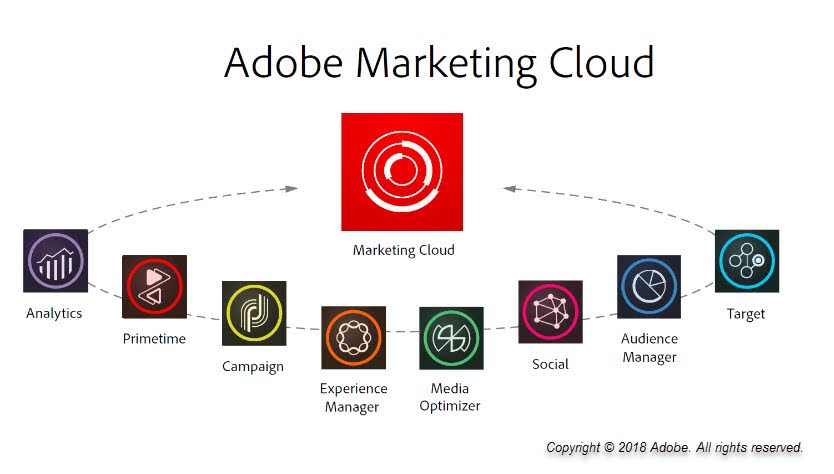
Adobe Experience Cloud is a comprehensive suite of marketing, analytics, advertising, and commerce solutions designed to help businesses deliver personalized experiences at scale. It brings together Adobe’s leading marketing technologies, including Adobe Marketing Cloud, Adobe Analytics Cloud, and Adobe Advertising Cloud, into a single integrated platform.
At the core of Adobe Experience Cloud is Adobe Experience Platform, a robust data management platform that enables businesses to unify customer data from various sources and activate it across channels in real-time. This unified approach allows businesses to gain deep insights into customer behavior, preferences, and intent, enabling them to deliver relevant and timely experiences at every touchpoint.
Key Features
Adobe Experience Cloud is a comprehensive suite of solutions designed to help businesses deliver exceptional digital experiences to their customers. Each component of the Adobe Experience Cloud plays a crucial role in enhancing various aspects of the customer journey. Let’s elaborate on the key features of each component:
Adobe Campaign:
- Enables businesses to create, automate, and measure marketing campaigns across multiple channels such as email, mobile, social media, and web.
- Provides tools for managing customer data, segmenting audiences, and personalizing content to improve engagement and conversion rates.
- Offers robust analytics capabilities to track campaign performance and optimize strategies for better results.
Adobe Target:
- Empowers businesses to personalize content and offers based on rich customer data and behavioral insights
- Utilizes advanced algorithms and machine learning to deliver targeted experiences in real-time, increasing relevance and effectiveness.
- Allows for A/B testing and multivariate testing to experiment with different variations and optimize conversion rates.
Adobe Analytics:
- Provides advanced analytics and reporting capabilities to track and measure marketing performance across various channels
- Offers insights into customer behavior, preferences, and journey touchpoints, allowing businesses to make data-driven decisions.
- Enables segmentation and audience analysis for targeted marketing campaigns and personalized experiences.
Adobe Experience Manager
- Allows businesses to create, manage, and deliver content across digital channels, including web, mobile, and social media
- Provides a centralized platform for content creation, collaboration, and workflow management, streamlining the content production process.
- Offers capabilities for asset management, digital asset optimization, and personalization to deliver engaging experiences across touchpoints.
Adobe Commerce:
- Formerly Magento Commerce, Adobe Commerce is a leading eCommerce platform that enables businesses to create seamless shopping experiences across digital and physical channels.
- Provides robust features for online store management, product catalog management, order processing, and payment integration.
- Offers flexibility and scalability to meet the needs of businesses of all sizes, from small startups to large enterprises.
Adobe Audience Manager:
- Helps businesses build and activate audience segments based on first-party and third-party data sources
- Enables precise targeting and personalization of marketing messages and offers to specific audience segments
- Allows for integration with other Adobe Experience Cloud solutions to enhance customer experiences and optimize marketing campaigns.
These key features collectively empower businesses to deliver personalized, seamless, and engaging digital experiences to their customers, driving customer satisfaction, loyalty, and ultimately, business growth.
Pros and Cons
Pros of Adobe Experience Cloud:
- Comprehensive Suite: Adobe Experience Cloud offers a comprehensive suite of marketing tools and capabilities, allowing businesses to manage all aspects of their omnichannel marketing efforts from a single platform.
- Integration and Interoperability: Adobe Experience Cloud integrates seamlessly with other Adobe products and third-party systems, enabling businesses to leverage existing investments and data sources.
- Personalization and Targeting: With advanced personalization and targeting capabilities, businesses can deliver relevant and timely experiences to their customers, driving engagement and conversion.
- Scalability and Flexibility: Adobe Experience Cloud is highly scalable and flexible, making it suitable for businesses of all sizes and industries, from small businesses to large enterprises.
Cons of Adobe Experience Cloud:
- Complexity and Learning Curve: Due to its extensive feature set and capabilities, Adobe Experience Cloud can be complex to implement and use, requiring a certain level of expertise and training.
- Cost: Adobe Experience Cloud is a premium solution, and the cost of licensing and implementation can be prohibitive for some businesses, particularly smaller organizations with limited budgets.
- Resource Requirements: Implementing and managing Adobe Experience Cloud requires dedicated resources, including IT infrastructure, personnel, and ongoing support, which may not be feasible for all businesses.
Salesforce Marketing Cloud
Salesforce Marketing Cloud makes the list of powerful omnichannel marketing platforms since it enables businesses to create, automate, and measure marketing campaigns across multiple channels. As part of the broader Salesforce ecosystem, Marketing Cloud seamlessly integrates with other Salesforce products, such as Salesforce CRM, to provide a unified view of customer data and deliver personalized experiences at scale.
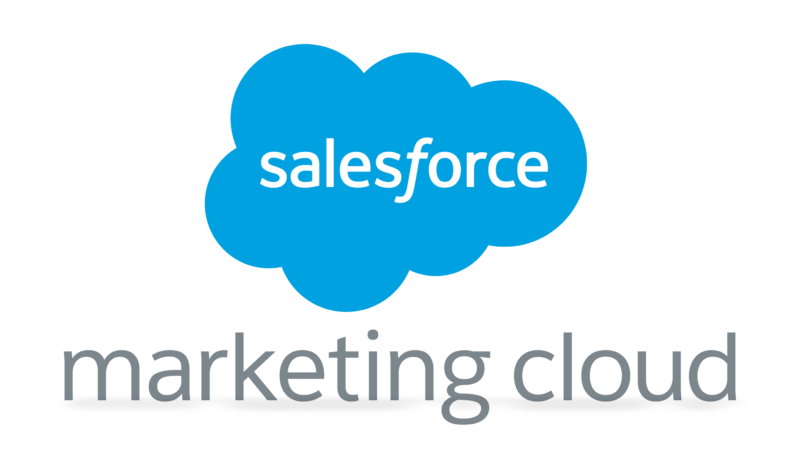
At its core, Salesforce Marketing Cloud is built on a robust data management platform that allows businesses to capture, unify, and activate customer data from various sources, including CRM systems, websites, mobile apps, and social media. This data-driven approach enables businesses to gain valuable insights into customer behavior and preferences, enabling them to deliver targeted and relevant messages across channels.
Key Features
Salesforce Marketing Cloud offers a comprehensive set of tools and features to enable businesses to create, manage, and optimize their marketing campaigns across various channels. Let’s delve into the key features of Salesforce Marketing Cloud:
Email Marketing:
- Allows users to create and send personalized email campaigns with ease
- Provides dynamic content capabilities to tailor emails based on recipient behavior, preferences, and demographics.
- Offers segmentation capabilities to target specific audience segments with relevant content
- Provides analytics and reporting features to track email performance, including open rates, click-through rates, and conversions.
Journey Builder:
- Enables businesses to design and automate customer journeys across multiple touchpoints, from initial awareness to advocacy
- Allows users to create personalized, omnichannel experiences based on customer interactions and behaviors.
- Provides drag-and-drop functionality for easy journey creation and visualization
- Offers journey analytics to track customer progression through the journey and optimize engagement at each stage.
Audience Studio:
- Builds and activates audience segments based on first-party and third-party data
- Provides robust segmentation capabilities to target customers with relevant messages and offers.
- Enables audience activation across various marketing channels, including email, social media, and advertising
- Can be integrated with other Salesforce Marketing Cloud modules for seamless audience management and targeting.
Social Studio:
- Facilitates the management and publishing of content across social media channels, including Facebook, Twitter, LinkedIn, and Instagram
- Allows businesses to engage with customers in real-time, respond to comments and messages, and monitor social media conversations.
- Provides social media listening capabilities to track brand mentions, sentiment, and trends
- Offers social media performance analytics to measure the effectiveness of social media campaigns and activities.
Advertising Studio:
- Enables businesses to create and manage targeted advertising campaigns across digital channels, including social media platforms and display ads
- Provides audience segmentation capabilities to target specific customer segments with relevant ads.
- Offers ad creation tools, ad scheduling, and budget management features
- Provides analytics and reporting to measure the performance of advertising campaigns and optimize ad spend.
Mobile Studio:
- Allows businesses to build and send personalized mobile messages, including push notifications and SMS, to engage customers on their preferred devices
- Provides mobile messaging automation capabilities for timely and relevant communications.
- Offers audience segmentation and targeting based on mobile app usage and behavior
- Provides analytics and reporting to track mobile engagement metrics and optimize mobile marketing campaigns.
These key features collectively empower businesses to create cohesive, personalized, and effective marketing campaigns across email, social media, advertising, and mobile channels, driving engagement, loyalty, and growth.
Pros and Cons
Pros of Salesforce Marketing Cloud:
- Comprehensive Suite: Salesforce Marketing Cloud offers a comprehensive suite of tools and capabilities to support omnichannel marketing efforts, from email and social media to mobile and advertising.
- Integration with Salesforce CRM: As part of the Salesforce ecosystem, Marketing Cloud integrates seamlessly with Salesforce CRM, allowing businesses to leverage customer data and insights to deliver personalized experiences.
- Scalability and Flexibility: Salesforce Marketing Cloud is highly scalable and flexible, making it suitable for businesses of all sizes and industries, from small startups to large enterprises.
- Advanced Automation and Personalization: With powerful automation and personalization capabilities, businesses can create targeted and relevant messages to engage customers throughout their journey.
Cons of Salesforce Marketing Cloud:
- Complexity and Learning Curve: Salesforce Marketing Cloud can be complex to implement and use, requiring a certain level of expertise and training.
- Cost: Salesforce Marketing Cloud is a premium solution, and the cost of licensing and implementation can be prohibitive for some businesses, particularly smaller organizations with limited budgets.
- Resource Requirements: Implementing and managing Salesforce Marketing Cloud requires dedicated resources, including IT infrastructure, personnel, and ongoing support, which may not be feasible for all businesses.
HubSpot
HubSpot is among the leading omnichannel marketing platforms since it offers a suite of tools and solutions designed to help businesses attract, engage, and delight customers. With its user-friendly interface and robust features, HubSpot is trusted by thousands of businesses worldwide to manage their marketing efforts effectively.
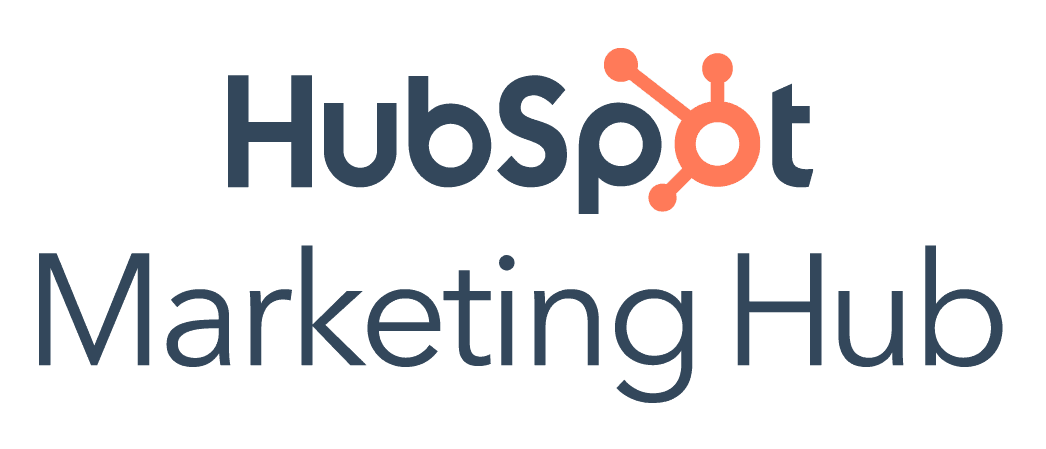
At its core, HubSpot provides a centralized platform for inbound marketing, which focuses on attracting and nurturing leads through valuable content and interactions. The platform offers a range of tools for content creation, lead generation, email marketing, social media management, and more, all integrated into a single interface.
Key Features
HubSpot is a comprehensive inbound marketing and sales platform that offers a range of tools to help businesses attract visitors, convert leads, and close customers. Let’s elaborate on the key features of each component of HubSpot:
Marketing Hub:
- Content Creation: Offers tools for creating and managing various types of content, including blog posts, landing pages, and email campaigns.
- Lead Generation: Provides features for capturing leads through forms, live chat, and lead flows, as well as tools for optimizing conversion rates.
- Email Marketing: Enables businesses to create and send personalized email campaigns, segment their contact lists, and measure email performance.
- Marketing Automation: Allows businesses to automate repetitive marketing tasks, nurture leads through personalized workflows, and track engagement.
- Analytics: Provides comprehensive analytics and reporting capabilities to track marketing performance, measure ROI, and optimize campaigns over time.
Sales Hub:
- Lead Management: Provides tools for managing leads, tracking interactions, and prioritizing prospects based on their engagement.
- Sales Automation: Offers features for automating sales processes, such as email sequences, task reminders, and meeting scheduling.
- Deal Tracking: Allows businesses to track deals through each stage of the sales pipeline, set goals, and forecast revenue.
- Sales Performance: Provides insights into sales performance metrics, such as conversion rates, deal velocity, and sales team activity, to help optimize sales efforts.
Service Hub:
- Customer Relationship Management: Offers tools for managing customer relationships, including a ticketing system, a knowledge base, and a feedback tool.
- Support: Enables businesses to provide multi-channel support, including email, live chat, and phone support, and track customer inquiries and resolutions.
- Feedback: Allows businesses to gather feedback from customers through surveys, NPS (Net Promoter Score) campaigns, and customer satisfaction ratings.
- Customer Loyalty: Helps businesses build customer loyalty by providing personalized support, resolving issues quickly, and delivering exceptional experiences.
CMS Hub:
- Content Management System: Provides a powerful CMS for creating and managing websites, blogs, and landing pages, with drag-and-drop editing and flexible design templates.
- SEO: Offers built-in SEO tools to optimize content for search engines, including keyword suggestions, on-page SEO recommendations, and performance tracking.
- Analytics: Provides insights into website performance, including traffic, conversions, and engagement metrics, to help businesses understand and optimize their online presence.
CRM:
- Centralized Database: HubSpot’s free CRM platform allows businesses to organize, track, and nurture leads and customers in one centralized database.
- Contact Management: Provides tools for managing contact information, tracking interactions, and segmenting contacts based on behavior and attributes.
- Integration: Integrates seamlessly with other HubSpot products and third-party tools to streamline workflows, improve data accuracy, and enhance collaboration across teams.
These key features collectively empower businesses to attract visitors, convert leads, and delight customers throughout their journey, driving growth and success.
Pros and Cons
Pros of HubSpot:
- User-Friendly Interface: HubSpot’s intuitive interface makes it easy for users to create, manage, and optimize marketing campaigns without the need for extensive technical expertise.
- Integrated Platform: HubSpot offers a comprehensive suite of tools and solutions for inbound marketing, sales, and customer service, all integrated into a single platform, making it easy for businesses to manage their entire customer lifecycle.
- Scalability: HubSpot’s modular approach allows businesses to start with the tools they need and scale up as their needs grow, making it suitable for businesses of all sizes and stages of growth.
- Educational Resources: HubSpot provides a wealth of educational resources, including blog posts, ebooks, webinars, and certification courses, to help users learn best practices and get the most out of the platform.
Cons of HubSpot:
- Cost: While HubSpot offers a free CRM platform, its paid marketing, sales, and service hubs can be costly, particularly for small businesses with limited budgets.
- Limited Customization: Some users may find HubSpot’s templates and customization options limiting compared to other platforms, particularly those with more complex requirements.
- Learning Curve: Despite its user-friendly interface, mastering all of HubSpot’s features and capabilities can take time and require ongoing training and support.
SAP Customer Experience (CX)
SAP Customer Experience (CX) is one of the leading omnichannel marketing platforms because of its comprehensive suite of solutions designed to help businesses deliver exceptional customer experiences across every touchpoint. Formerly known as SAP Hybris, SAP CX combines customer data, machine learning, and omnichannel capabilities to empower businesses to engage with their customers in more meaningful ways.
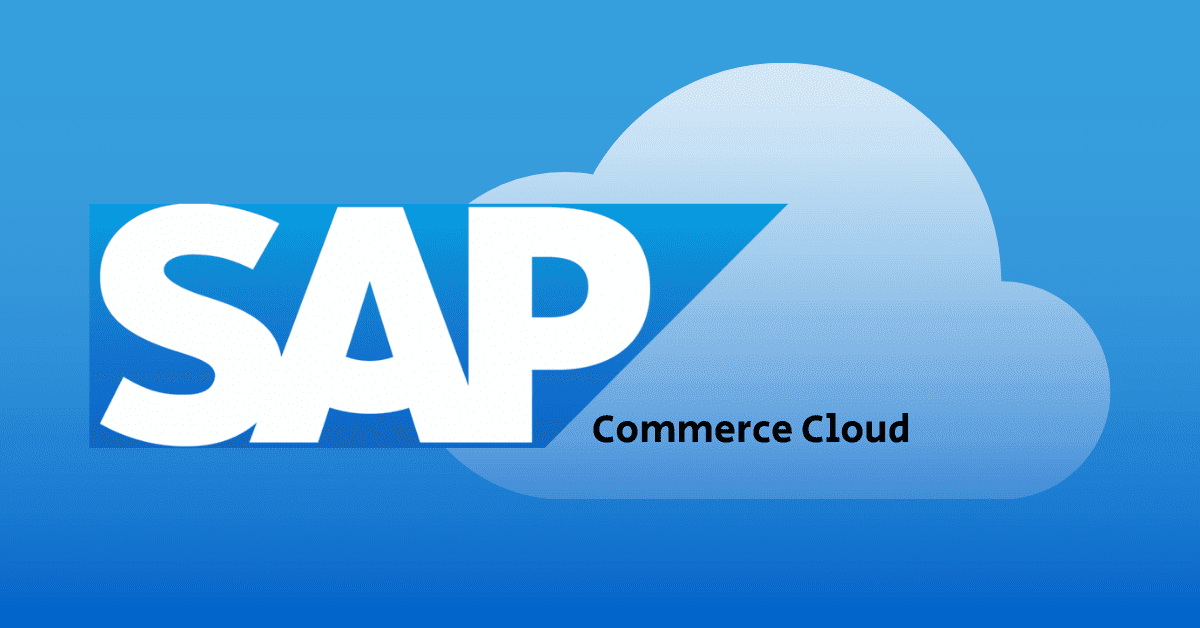
At its core, SAP CX provides businesses with a unified platform to manage customer relationships, sales, marketing, eCommerce, and service interactions. By centralizing customer data and insights, SAP CX enables businesses to deliver personalized experiences that drive customer satisfaction, loyalty, and advocacy.
Key Features
SAP Customer Experience (SAP CX) is a suite of integrated solutions designed to help businesses deliver exceptional customer experiences across the entire customer journey. Let’s elaborate on the key features of each component:
SAP Sales Cloud:
- Sales Automation: Provides tools for automating sales processes, including lead management, opportunity scoring, and pipeline management.
- Lead Management: Enables businesses to capture, qualify, and nurture leads effectively, ensuring a steady flow of qualified prospects.
- Forecasting: Offers forecasting capabilities to predict sales performance and trends, helping businesses make informed decisions and allocate resources effectively.
- Analytics: Provides advanced analytics and reporting features to track sales performance, identify trends, and optimize sales strategies for better results.
SAP Marketing Cloud:
- Omnichannel Campaign Management: Allows businesses to create, orchestrate, and measure marketing campaigns across multiple channels, including email, social media, mobile, and web.
- Customer Segmentation: Provides tools for segmenting customers based on demographics, behavior, and preferences, enabling personalized marketing efforts.
- Journey Orchestration: Enables businesses to design and automate customer journeys, delivering personalized experiences at every touchpoint.
- Real-time Analytics: Offers real-time analytics and insights to track campaign performance, optimize targeting, and improve ROI.
SAP Commerce Cloud:
- eCommerce Platform: Provides a comprehensive eCommerce platform for creating, managing, and optimizing digital storefronts.
- Product Catalog Management: Allows businesses to manage product catalogs, pricing, and inventory across multiple channels.
- Content Personalization: Offers tools for personalizing content and product recommendations based on customer behavior and preferences.
- Omnichannel Fulfillment: Enables businesses to fulfill orders seamlessly across multiple channels, including online, mobile, and in-store.
SAP Service Cloud:
- Customer Service Management: Provides tools for managing customer inquiries, complaints, and requests, ensuring timely and efficient resolution.
- Knowledge Management: Offers a centralized knowledge base for agents to access relevant information and solutions quickly, improving service quality and efficiency.
- Service Analytics: Provides analytics and insights into service performance, including response times, resolution rates, and customer satisfaction scores.
- Field Service Management: Enables businesses to manage field service operations, including scheduling, dispatching, and tracking, to ensure timely service delivery and customer satisfaction.
SAP Customer Data Cloud:
- Identity Management: Allows businesses to manage customer identities across channels and touchpoints, ensuring a unified view of the customer.
- Consent Management: Provides tools for managing customer consent and preferences, ensuring compliance with data privacy regulations such as GDPR.
- Customer Profile Enrichment: Enables businesses to enrich customer profiles with additional data, such as preferences and behavior, to personalize experiences effectively.
These key features collectively empower businesses to deliver seamless, personalized, and engaging customer experiences, driving customer satisfaction, loyalty, and business growth.
Pros and Cons
Pros of SAP CX:
- Comprehensive Suite of Solutions: SAP CX offers a comprehensive suite of solutions for sales, marketing, commerce, and service, all integrated into a single platform.
- Scalability: SAP CX is highly scalable and flexible, making it suitable for businesses of all sizes and industries, from small startups to large enterprises.
- Integration with SAP ERP: As part of the broader SAP ecosystem, SAP CX integrates seamlessly with SAP ERP systems, allowing businesses to leverage existing investments in back-office operations and data.
- Advanced Analytics and Insights: SAP CX provides businesses with advanced analytics and insights to track customer behavior, measure campaign performance, and optimize marketing efforts in real-time.
Cons of SAP CX:
- Cost: SAP CX is a premium solution, and the cost of licensing and implementation can be prohibitive for some businesses, particularly smaller organizations with limited budgets.
- Complexity: Due to its extensive feature set and capabilities, SAP CX can be complex to implement and use, requiring a certain level of expertise and training.
- Resource Requirements: Implementing and managing SAP CX requires dedicated resources, including IT infrastructure, personnel, and ongoing support, which may not be feasible for all businesses.
Oracle CX Marketing (formerly Eloqua)
Oracle CX Marketing, formerly known as Eloqua, is one of the outstanding omnichannel marketing platforms. It is a comprehensive marketing automation platform designed to help businesses create, execute, and analyze omnichannel marketing campaigns. Acquired by Oracle in 2012, Eloqua has since become an integral part of the Oracle Customer Experience (CX) suite, offering businesses a suite of tools to deliver personalized experiences across email, web, mobile, social, and other channels.
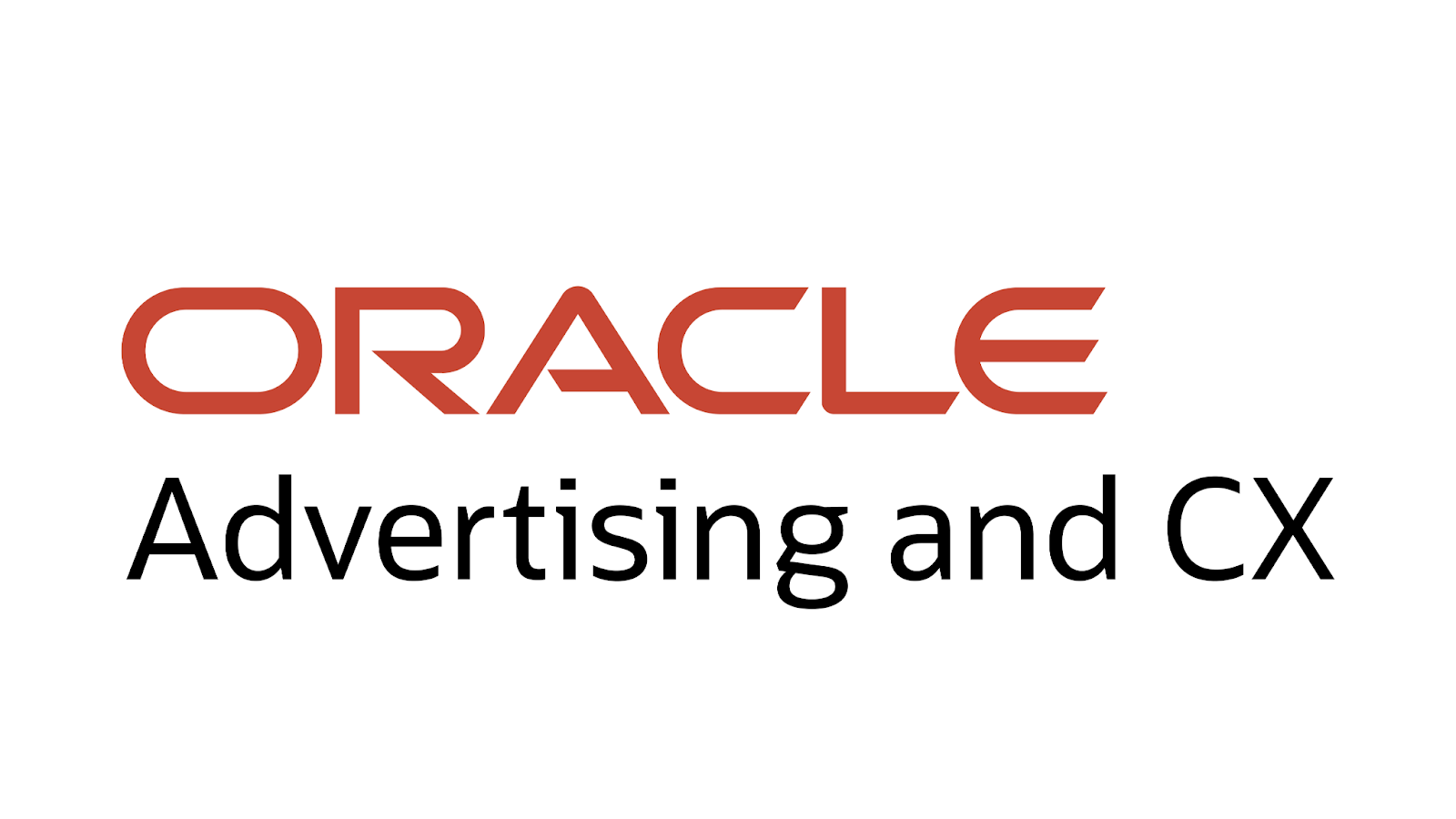
At its core, Oracle CX Marketing enables businesses to segment their audience, create targeted campaigns, automate marketing workflows, and measure campaign performance—all from a single platform. With its robust features and seamless integrations, Oracle CX Marketing empowers businesses to engage with their customers in more meaningful ways and drive business growth.
Key Features
Oracle CX Marketing is a comprehensive marketing automation platform designed to empower businesses to deliver personalized and impactful marketing campaigns across multiple channels. Let’s delve into the key features of Oracle CX Marketing:
Email Marketing:
- Advanced Email Design: Provides intuitive tools for creating visually appealing and responsive email templates without the need for coding skills.
- Personalization: Enables businesses to personalize email content based on customer attributes, behaviors, and preferences, increasing engagement and conversion rates.
- Segmentation: Allows businesses to segment their email lists based on various criteria such as demographics, purchase history, and engagement levels, ensuring targeted and relevant communication.
- Automation: Offers robust automation capabilities for setting up drip campaigns, triggered emails, and other automated workflows to nurture leads and engage customers effectively.
- Deliverability Monitoring: Provides tools to monitor email deliverability metrics, identify issues, and optimize email deliverability rates to ensure messages reach recipients’ inboxes.
Campaign Management:
- Omnichannel Campaign Creation: Enables businesses to create, manage, and track marketing campaigns across multiple channels, including email, web, mobile, social media, and advertising, ensuring consistent messaging and branding.
- Cross-Channel Coordination: Allows businesses to coordinate campaigns across different channels to deliver a seamless and integrated customer experience.
- Campaign Tracking: Provides comprehensive tracking and reporting capabilities to monitor campaign performance, measure key metrics such as opens, clicks, conversions, and ROI, and make data-driven decisions to optimize future campaigns.
Lead Management:
- Lead Capture: Provides tools for capturing leads through various channels such as web forms, landing pages, social media, and events, ensuring a steady influx of prospects into the sales funnel.
- Lead Nurturing: Enables businesses to nurture leads with personalized and targeted content through automated email sequences, dynamic content, and lead scoring, guiding them through the buyer’s journey.
- Lead Scoring: Allows businesses to prioritize leads based on their engagement, behavior, and demographics, ensuring sales teams focus their efforts on the most promising opportunities for conversion.
Analytics and Reporting:
- Real-time Analytics: Offers real-time reporting and analytics dashboards to track key performance indicators (KPIs), monitor campaign effectiveness, and identify areas for optimization.
- Customizable Reports: Allows businesses to create custom reports and dashboards tailored to their specific needs and objectives, providing actionable insights for informed decision-making.
- ROI Measurement: Enables businesses to measure the return on investment (ROI) of their marketing campaigns, attributing revenue and conversions to specific marketing activities and channels.
Integration with Oracle CX Cloud:
- Seamless Integration: Integrates seamlessly with other Oracle CX Cloud applications, including sales, service, and commerce, providing businesses with a unified platform to manage their entire customer lifecycle.
- Unified Data Management: Ensures data consistency and integrity across different CX applications, enabling businesses to leverage customer data for personalized marketing, sales, and service experiences.
These key features of Oracle CX Marketing collectively empower businesses to create personalized, targeted, and effective marketing campaigns that drive engagement, nurture leads, and ultimately, boost revenue and customer loyalty.
Pros and Cons
Pros of Oracle CX Marketing:
- Comprehensive Feature Set: Oracle CX Marketing offers a comprehensive set of features and capabilities to support omnichannel marketing efforts, from email and campaign management to lead scoring and analytics.
- Scalability: Oracle CX Marketing is highly scalable and flexible, making it suitable for businesses of all sizes and industries, from small startups to large enterprises.
- Integration with Oracle CX Cloud: Oracle CX Marketing integrates seamlessly with other Oracle CX Cloud applications, providing businesses with a unified platform to manage their entire customer lifecycle.
- Advanced Analytics and Reporting: Oracle CX Marketing provides businesses with advanced analytics and reporting capabilities to track campaign performance, measure ROI, and optimize marketing efforts in real-time.
Cons of Oracle CX Marketing:
- Cost: Oracle CX Marketing is a premium solution, and the cost of licensing and implementation can be prohibitive for some businesses, particularly smaller organizations with limited budgets.
- Complexity: Due to its extensive feature set and capabilities, Oracle CX Marketing can be complex to implement and use, requiring a certain level of expertise and training.
- Resource Requirements: Implementing and managing Oracle CX Marketing requires dedicated resources, including IT infrastructure, personnel, and ongoing support, which may not be feasible for all businesses.
IBM Watson Customer Experience Analytics
IBM Watson Customer Experience Analytics is one of the powerful omnichannel marketing platforms that enables businesses to gain deep insights into customer behavior, preferences, and interactions across multiple channels. Leveraging the power of artificial intelligence and machine learning, IBM Watson CXA helps businesses understand the entire customer journey and identify opportunities to improve the overall experience.

At its core, IBM Watson CXA provides businesses with a unified view of customer data from various sources, including websites, mobile apps, social media, and offline interactions. By analyzing this data, IBM Watson CXA helps businesses uncover actionable insights and make data-driven decisions to optimize their marketing efforts and drive business results.
Key Features
IBM Watson Customer Experience Analytics (CXA) is a powerful platform that enables businesses to gain deep insights into customer behavior, preferences, and interactions across various touchpoints. Let’s elaborate on the key features of IBM Watson CXA:
Customer Journey Analysis:
- Visualization: IBM Watson CXA provides visualizations of the customer journey, allowing businesses to see the entire customer lifecycle from awareness to conversion and beyond.
- Analysis: Businesses can analyze customer interactions at each touchpoint to understand their behavior, preferences, and pain points.
- Optimization: By identifying areas of friction or drop-off in the customer journey, businesses can optimize their processes and experiences to enhance customer satisfaction and drive conversions.
Behavioral Segmentation:
- Segmentation Criteria: IBM Watson CXA allows businesses to segment their audience based on various criteria, including behavior, demographics, and other attributes.
- Personalization: Businesses can tailor marketing messages and offers to specific audience segments, increasing relevance and engagement.
- Targeted Campaigns: By delivering targeted campaigns to different segments, businesses can improve conversion rates and ROI on their marketing efforts.
Session Replay:
- Real-time Replay: IBM Watson CXA enables businesses to replay customer sessions in real-time, allowing them to see exactly how customers navigate their website or app.
- Usability Insights: By observing customer behavior firsthand, businesses can identify usability issues, friction points, and areas for improvement in their digital experiences.
- Troubleshooting: Session replay can help businesses troubleshoot technical issues, such as errors or glitches, and take corrective actions promptly.
Predictive Analytics:
- Machine Learning: IBM Watson CXA leverages machine learning algorithms to analyze historical data and predict future customer behavior and preferences.
- Anticipatory Insights: By predicting customer needs and preferences, businesses can proactively address them with personalized recommendations, offers, or support, increasing customer satisfaction and loyalty.
- Decision Support: Predictive analytics in IBM Watson CXA provides businesses with valuable insights to make informed decisions and optimize their marketing, sales, and service strategies.
Integration with IBM Watson AI:
- Advanced Capabilities: IBM Watson CXA integrates seamlessly with other IBM Watson AI services, including natural language processing, sentiment analysis, and image recognition.
- Enhanced Insights: By leveraging advanced AI capabilities, businesses can gain deeper insights into customer sentiment, intent, and preferences, enabling them to deliver more personalized and engaging experiences.
- Automation: Integration with IBM Watson AI allows businesses to automate certain tasks, such as chatbots for customer support or personalized product recommendations, to streamline operations and improve efficiency.
These key features of IBM Watson CXA collectively empower businesses to understand, analyze, and optimize the customer experience, driving greater satisfaction, loyalty, and business success.
Pros and Cons
Pros of IBM Watson CXA:
- Advanced Analytics Capabilities: IBM Watson CXA offers advanced analytics capabilities, including customer journey analysis, behavioral segmentation, session replay, and predictive analytics, to help businesses gain deep insights into customer behavior and preferences.
- Personalization and Targeting: With IBM Watson CXA, businesses can deliver personalized and targeted marketing campaigns based on customer data and insights, increasing engagement and conversion rates.
- Integration with IBM Watson AI: IBM Watson CXA integrates seamlessly with other IBM Watson AI services, enabling businesses to leverage advanced capabilities to enhance the customer experience.
- Scalability: IBM Watson CXA is highly scalable and flexible, making it suitable for businesses of all sizes and industries, from small startups to large enterprises.
Cons of IBM Watson CXA:
- Cost: IBM Watson CXA is a premium solution, and the cost of licensing and implementation can be prohibitive for some businesses, particularly smaller organizations with limited budgets.
- Complexity: Due to its advanced features and capabilities, IBM Watson CXA can be complex to implement and use, requiring a certain level of expertise and training.
- Resource Requirements: Implementing and managing IBM Watson CXA requires dedicated resources, including IT infrastructure, personnel, and ongoing support, which may not be feasible for all businesses.
Google Marketing Platform
Google Marketing Platform is one of the leading omnichannel marketing platforms, consisting of a comprehensive suite of marketing tools and solutions designed to help businesses reach their audience effectively, measure campaign performance, and optimize their marketing efforts across channels. As part of the Google ecosystem, the platform integrates seamlessly with other Google products, such as Google Ads, Google Analytics, and Google Tag Manager, providing businesses with a unified platform to manage their omnichannel marketing activities.
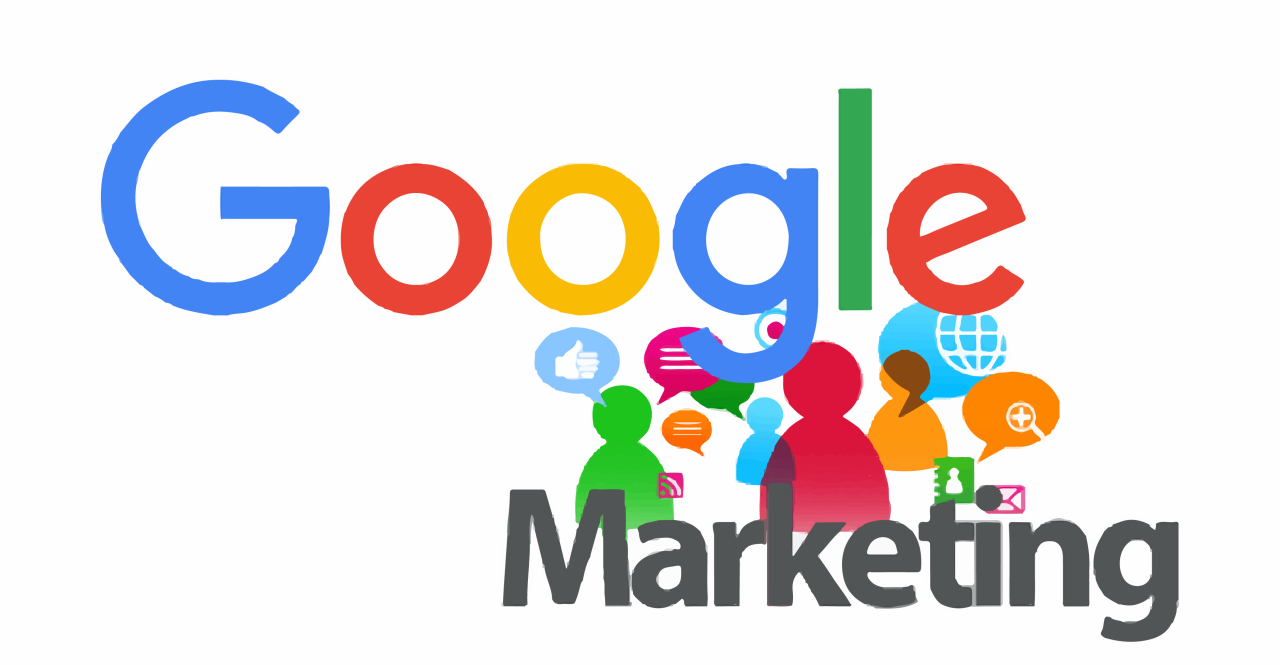
At its core, Google Marketing Platform offers a range of tools for campaign planning, execution, measurement, and optimization. Whether it’s reaching customers through display advertising, measuring website traffic and engagement, or optimizing search engine marketing campaigns, Google Marketing Platform provides businesses with the tools they need to succeed in today’s digital landscape.
Key Features
Google Marketing Platform is a comprehensive suite of tools designed to help businesses effectively manage and optimize their digital marketing efforts across various channels. Let’s elaborate on the key features of each component:
Google Ads:
- Ad Campaign Management: Google Marketing Platform allows businesses to create, manage, and optimize advertising campaigns across Google’s network of properties, including search, display, video, and app ads.
- Advanced Targeting: Businesses can leverage advanced targeting options such as demographics, interests, and remarketing to reach their target audience effectively and drive relevant traffic.
- Bidding Strategies: Google Ads offers a variety of bidding strategies, including manual CPC, automated bidding, and smart bidding, to help businesses maximize their return on investment (ROI) and achieve their advertising goals.
- Performance Insights: Businesses can access detailed performance insights and reports to track key metrics such as impressions, clicks, conversions, and ROI, allowing them to optimize their campaigns for better results.
Google Analytics:
- Web Analytics: Google Marketing Platform includes Google Analytics, a powerful web analytics platform that provides businesses with insights into website traffic, user behavior, and conversion metrics.
- Goal Tracking: Businesses can set up and track custom goals, such as form submissions, purchases, and sign-ups, to measure the effectiveness of their marketing efforts and identify areas for improvement.
- Audience Segmentation: Google Analytics allows businesses to segment their audience based on various criteria, such as demographics, interests, and behavior, to better understand their customers and tailor their marketing strategies accordingly.
- eCommerce Reporting: For businesses with eCommerce websites, Google Analytics offers eCommerce reporting features to track sales performance, revenue, and product performance, helping businesses optimize their online sales funnel.
Google Tag Manager:
- Tag Management: Google Marketing Platform offers Google Tag Manager, a tag management system that allows businesses to deploy and manage marketing tags on their website or app.
- Streamlined Implementation: With features like tag templates, triggers, and variables, businesses can streamline the process of implementing and managing tracking codes, ensuring data accuracy and efficiency.
- Version Control: Google Tag Manager provides version control and debugging tools, allowing businesses to manage changes to their tags and roll back to previous versions if needed, reducing the risk of errors and downtime.
Google Optimize:
- A/B Testing: Google Marketing Platform includes Google Optimize, an A/B testing and personalization platform that allows businesses to test different variations of their website or app experiences.
- Personalization: Businesses can deliver personalized content and experiences to users based on their behavior, preferences, and demographics, increasing engagement and conversion rates.
- Experiment Reporting: Google Optimize provides detailed experiment reports and insights, allowing businesses to analyze test results and make data-driven decisions to optimize their digital experiences.
Google Data Studio:
- Data Visualization: Google Marketing Platform offers Google Data Studio, a data visualization and reporting tool that allows businesses to create interactive dashboards and reports.
- Customization: With features like data connectors, chart customization, and styling options, businesses can create customized dashboards and reports to visualize their data in meaningful and insightful ways.
- Collaboration: Google Data Studio allows businesses to share dashboards and reports with stakeholders, collaborate in real-time, and make data-driven decisions together, fostering a culture of data-driven decision-making.
These key features of Google Marketing Platform collectively empower businesses to effectively manage and optimize their digital marketing efforts, drive relevant traffic, measure performance, and achieve their advertising and business goals.
Pros and Cons
Pros of Google Marketing Platform:
- Integration with Google Ecosystem: Google Marketing Platform integrates seamlessly with other Google products and services, providing businesses with a unified platform to manage their omnichannel marketing activities.
- Scalability and Flexibility: Google Marketing Platform is highly scalable and flexible, making it suitable for businesses of all sizes and industries, from small startups to large enterprises.
- Advanced Analytics and Reporting: With Google Analytics and Google Data Studio, businesses can gain deep insights into customer behavior and campaign performance, enabling them to measure the effectiveness of their marketing efforts and make data-driven decisions.
- Optimization and Personalization: Google Optimize allows businesses to test different variations of their digital experiences and deliver personalized content to users, helping to drive engagement and conversion rates.
Cons of Google Marketing Platform:
- Learning Curve: Google Marketing Platform can be complex to implement and use, particularly for businesses with limited experience or expertise in digital marketing.
- Data Privacy Concerns: Given Google’s dominance in the digital advertising space, some businesses may have concerns about data privacy and security when using Google Marketing Platform.
- Cost: While some components of Google Marketing Platform are available for free, others may require a subscription or payment based on usage, which can be costly for some businesses, particularly smaller organizations with limited budgets.
Emarsys
Emarsys is among the robust omnichannel marketing platforms that empowers businesses to create, automate, and optimize personalized customer interactions across email, mobile, social media, web, and other digital channels. Founded in 2000, Emarsys has established itself as a trusted partner for thousands of brands worldwide, helping them drive growth and foster customer loyalty through data-driven marketing strategies.
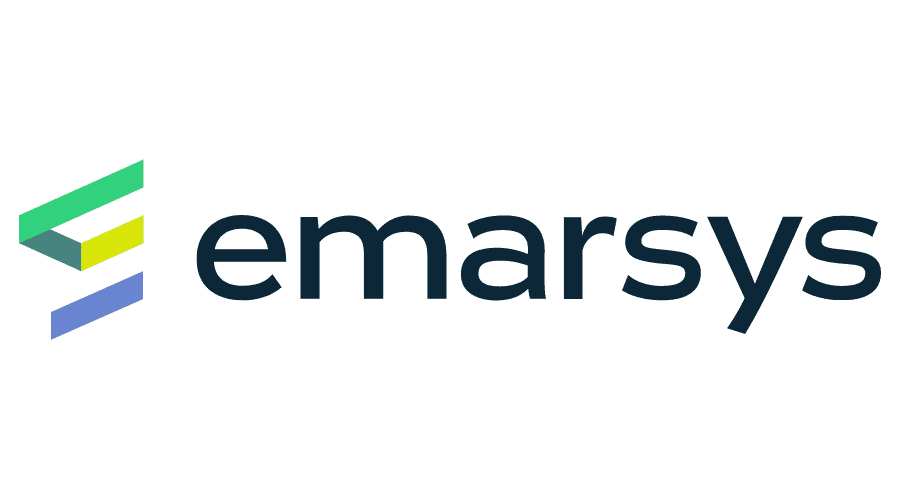
At its core, Emarsys provides businesses with a unified platform to collect, analyze, and act on customer data in real-time. By leveraging advanced machine learning and AI capabilities, Emarsys enables businesses to deliver highly targeted and relevant messages to their customers at every touchpoint, driving engagement and conversion.
Key Features
Emarsys is a leading marketing automation platform that empowers businesses to deliver personalized and impactful marketing campaigns across various channels. Let’s delve into the key features of Emarsys:
Unified Customer Profile:
- Data Aggregation: Emarsys aggregates customer data from diverse sources, including CRM systems, eCommerce platforms, and third-party sources, to create a comprehensive and unified customer profile.
- Individualization: This unified view allows businesses to understand each customer’s preferences, behaviors, and interactions across channels, enabling personalized marketing experiences.
- Segmentation: Emarsys enables businesses to segment their customer base dynamically based on various criteria, such as demographics, purchase history, and engagement level, to target specific audiences with relevant messaging.
Predictive Analytics:
- Data Analysis: Emarsys leverages predictive analytics and machine learning algorithms to analyze historical data and identify patterns, trends, and correlations.
- Future Insights: By understanding past behaviors, Emarsys can predict future actions, such as purchase intent, product preferences, or churn risk, enabling businesses to anticipate customer needs and take proactive measures.
- Targeted Engagement: Businesses can use these predictive insights to tailor marketing strategies, offers, and communications, ensuring relevance and effectiveness in engaging with customers.
Automation Workflows:
- Workflow Automation: Emarsys offers robust automation capabilities to streamline marketing workflows and processes, reducing manual effort and increasing efficiency.
- Triggered Campaigns: Businesses can set up automated campaigns, such as welcome series, abandoned cart reminders, or post-purchase follow-ups, triggered by specific customer actions or events.
- Lifecycle Marketing: Emarsys supports lifecycle marketing strategies by delivering timely and relevant messages to customers at different stages of their journey, from acquisition to retention and advocacy.
Personalized Content Recommendations:
- AI-driven Recommendations: Emarsys uses AI-driven algorithms to analyze customer preferences, browsing behavior, and historical interactions to generate personalized content recommendations.
- Product Recommendations: Businesses can deliver tailored product recommendations or content suggestions to individual customers across various touchpoints, such as email, website, or mobile app.
- Increased Engagement: By serving relevant and timely content, Emarsys helps businesses increase customer engagement, drive repeat purchases, and foster brand loyalty.
Real-Time Reporting and Insights:
- Performance Tracking: Emarsys provides real-time reporting and insights to track campaign performance, measure ROI, and monitor key metrics such as open rates, click-through rates, and conversion rates.
- Customizable Dashboards: Businesses can create customizable dashboards and reports to visualize data, gain actionable insights, and make informed decisions.
- Optimization Opportunities: By analyzing real-time data and performance metrics, businesses can identify optimization opportunities, refine their marketing strategies, and continuously improve their omnichannel marketing efforts.
These key features of Emarsys collectively empower businesses to deliver personalized, relevant, and engaging marketing experiences that drive customer satisfaction, loyalty, and business growth.
Pros and Cons
Pros of Emarsys:
- Advanced Personalization: Emarsys enables businesses to deliver highly personalized experiences to their customers across channels, driving engagement and loyalty.
- Predictive Analytics: Emarsys uses predictive analytics and machine learning algorithms to anticipate customer behavior and preferences, allowing businesses to proactively engage with customers and drive desired outcomes.
- Automation and Efficiency: Emarsys offers powerful automation capabilities to streamline marketing workflows and processes, saving time and resources for businesses.
- Comprehensive Reporting: Emarsys provides businesses with real-time reporting and insights to track campaign performance and measure ROI, helping them optimize their marketing efforts and drive results.
Cons of Emarsys:
- Cost: Emarsys is a premium solution, and the cost of licensing and implementation can be prohibitive for some businesses, particularly smaller organizations with limited budgets.
- Complexity: Emarsys can be complex to implement and use, requiring a certain level of expertise and training to fully leverage its capabilities.
- Integration Challenges: Integrating Emarsys with existing systems and platforms may require additional resources and technical expertise, potentially causing delays or challenges for some businesses.
Iterable
Iterable belongs on the list of powerful omnichannel marketing platforms that enables businesses to create, execute, and optimize personalized marketing campaigns across email, mobile, social media, web, and other digital channels. Founded in 2013, Iterable has quickly emerged as a preferred choice for companies looking to drive engagement and revenue through data-driven marketing strategies.
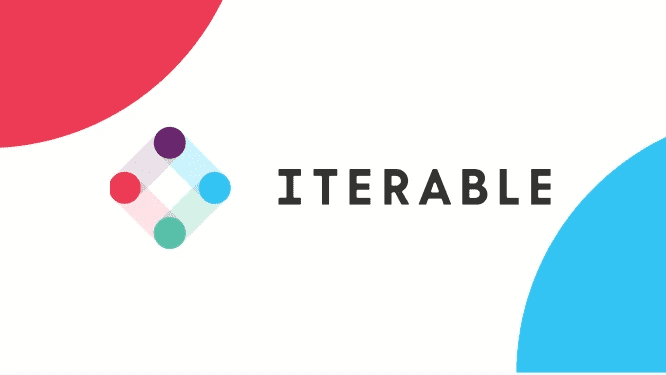
At its core, Iterable provides businesses with a unified platform to collect, analyze, and act on customer data in real-time. By leveraging advanced segmentation, personalization, and automation capabilities, Iterable empowers businesses to deliver relevant and timely messages to their customers at every touchpoint in their journey.
Key Features
Iterable is a powerful marketing automation platform designed to help businesses deliver personalized and impactful marketing campaigns across multiple channels. Let’s elaborate on the key features of Iterable.
Cross-Channel Campaign Orchestration:
- Omnichannel Capabilities: Iterable enables businesses to create and orchestrate marketing campaigns seamlessly across various channels, including email, SMS, push notifications, in-app messages, and more.
- Visual Workflow Builder: Businesses can use Iterable’s visual workflow builder to design complex marketing automation workflows with ease, ensuring consistent and cohesive customer experiences across all channels.
- Advanced Segmentation: Iterable provides advanced segmentation capabilities, allowing businesses to target specific audience segments with tailored messages and offers based on demographics, behavior, and preferences.
Personalization and Dynamic Content:
- Personalization Features: Iterable empowers businesses to personalize marketing messages and content based on customer attributes, behaviors, and interactions.
- Dynamic Content Blocks: Businesses can create dynamic content blocks that automatically adjust based on each recipient’s profile and preferences, ensuring relevance and engagement.
- A/B Testing: Iterable offers A/B testing capabilities to experiment with different variations of content, subject lines, and calls-to-action to optimize campaign performance.
Automation Workflows:
- Streamlined Automation: Iterable provides powerful automation capabilities to streamline marketing workflows and processes, reducing manual effort and increasing efficiency.
- Automated Campaigns: Businesses can set up automated campaigns, such as welcome series, abandoned cart reminders, and re-engagement campaigns, to engage with customers at key moments in their journey and drive conversions.
- Triggered Messages: Iterable allows businesses to trigger messages based on specific customer actions or behaviors, such as website visits, purchases, or email opens, ensuring timely and relevant communication.
Real-Time Data Sync:
- Data Synchronization: Iterable offers real-time data synchronization across all channels, ensuring that businesses have access to the most up-to-date customer information at all times.
- Real-Time Personalization: By leveraging real-time data, businesses can deliver timely and relevant messages based on customer behavior and interactions, increasing the effectiveness of their marketing campaigns.
Advanced Analytics and Reporting:
- Comprehensive Analytics: Iterable provides robust analytics and reporting capabilities to track campaign performance, measure ROI, and optimize marketing efforts.
- Customizable Dashboards: Businesses can create customizable dashboards to visualize key metrics, track campaign effectiveness, and identify areas for improvement.
- Cohort Analysis: Iterable offers cohort analysis tools to segment customers based on shared characteristics or behaviors, allowing businesses to gain deeper insights into customer behavior and preferences.
- Attribution Modeling: Iterable enables businesses to attribute conversions and revenue to specific marketing campaigns or channels, helping them understand the impact of their marketing efforts and allocate resources effectively.
These key features of Iterable collectively empower businesses to deliver personalized, relevant, and engaging marketing experiences that drive customer engagement, loyalty, and revenue growth.
Pros and Cons
Pros of Iterable:
- Cross-Channel Orchestration: Iterable enables businesses to create and orchestrate omnichannel marketing campaigns across multiple channels, ensuring consistent and cohesive experiences for their customers.
- Personalization and Dynamic Content: Iterable allows businesses to personalize marketing messages and content based on customer attributes, preferences, and behaviors, driving engagement and conversion.
- Automation and Efficiency: Iterable offers powerful automation capabilities to streamline marketing workflows and processes, saving time and resources for businesses.
- Real-Time Data Sync: Iterable provides real-time data synchronization across all channels, ensuring that businesses have access to the most up-to-date customer information at all times, enabling timely and relevant messaging.
Cons:
- Cost: Iterable is a premium solution, and the cost of licensing and implementation can be prohibitive for some businesses, particularly smaller organizations with limited budgets.
- Complexity: Iterable can be complex to implement and use, requiring a certain level of expertise and training to fully leverage its capabilities.
- Integration Challenges: Integrating Iterable with existing systems and platforms may require additional resources and technical expertise, potentially causing delays or challenges for some businesses.
Mailchimp
Mailchimp is one of the widely popular omnichannel marketing platforms that provides businesses with the tools they need to create, manage, and optimize marketing campaigns across email, social media, landing pages, and more. Founded in 2001, Mailchimp has grown to become one of the most trusted names in the industry, serving millions of customers worldwide.

At its core, Mailchimp offers an intuitive and user-friendly interface that makes it easy for businesses of all sizes to execute effective marketing campaigns. Whether it’s sending targeted email newsletters, automating follow-up sequences, or analyzing campaign performance, Mailchimp provides businesses with the tools they need to succeed in today’s digital world.
Key Features
Mailchimp is a comprehensive marketing platform that offers a variety of tools and features to help businesses engage with their audience and drive results. Let’s elaborate on the key features of Mailchimp:
Email Marketing:
- Customizable Templates: Mailchimp provides a library of customizable email templates that businesses can use to create visually appealing and professional-looking email campaigns.
- Segmentation Options: Businesses can segment their email lists based on various criteria such as demographics, interests, and past purchase behavior, allowing them to send targeted and relevant messages to different audience segments.
- Advanced Analytics: Mailchimp offers advanced analytics features that allow businesses to track email campaign performance metrics such as open rates, click-through rates, and conversion rates. This data helps businesses understand the effectiveness of their email campaigns and make informed decisions to optimize their strategy.
- A/B Testing: Mailchimp allows businesses to conduct A/B tests on their email campaigns to test different subject lines, content variations, and send times, helping them identify the most effective strategies for engaging their audience.
Marketing Automation:
- Automated Workflows: Mailchimp’s marketing automation features enable businesses to set up automated workflows that trigger emails based on specific actions or events, such as sign-ups, purchases, or website visits.
- Personalized Messaging: Businesses can use Mailchimp’s automation tools to send personalized and targeted messages to subscribers based on their behavior and preferences, increasing engagement and conversion rates.
- Drip Campaigns: Mailchimp allows businesses to create drip campaigns that deliver a series of emails over time, nurturing leads and guiding them through the customer journey towards conversion.
Social Media Management:
- Social Media Scheduling: Mailchimp enables businesses to schedule and publish posts across various social media platforms, including Facebook, Instagram, and Twitter, from within the platform.
- Social Media Tracking: Businesses can track the performance of their social media posts and campaigns directly within Mailchimp, allowing them to measure engagement metrics such as likes, shares, and comments.
- Integration: Mailchimp integrates with popular social media platforms, allowing businesses to streamline their social media management efforts and maintain a consistent brand presence across channels.
Landing Pages:
- Drag-and-Drop Editor: Mailchimp’s landing page builder features a user-friendly drag-and-drop editor that allows businesses to create customized landing pages without any coding knowledge.
- Pre-designed Templates: Businesses can choose from a selection of pre-designed landing page templates optimized for conversion, making it easy to create landing pages for lead generation, event registrations, product promotions, and more.
- Mobile Responsive: All landing pages created with Mailchimp are mobile-responsive, ensuring a seamless experience for visitors on all devices.
Analytics and Reporting:
- Detailed Reporting: Mailchimp provides businesses with detailed analytics and reporting tools that allow them to track key metrics such as open rates, click-through rates, revenue generated, and more.
- ROI Tracking: Businesses can measure the return on investment (ROI) of their marketing efforts by tracking revenue generated from email campaigns, social media posts, and other marketing activities.
- Insightful Dashboards: Mailchimp’s reporting dashboards provide businesses with actionable insights into the performance of their marketing campaigns, helping them identify trends, spot opportunities, and optimize their strategy for better results.
These key features of Mailchimp collectively empower businesses to create, automate, and track their marketing efforts across email, social media, and landing pages, driving engagement, conversions, and revenue growth.
Pros and Cons
Pros of Mailchimp:
- User-Friendly Interface: Mailchimp’s intuitive interface makes it easy for businesses to create, manage, and optimize marketing campaigns without the need for extensive technical expertise.
- Affordability: Mailchimp offers a range of pricing plans to suit businesses of all sizes and budgets, making it an accessible option for startups and small businesses.
- Integration: Mailchimp integrates seamlessly with a wide range of third-party tools and platforms, including eCommerce platforms, CRMs, and analytics tools, providing businesses with a centralized hub for their marketing efforts.
- Comprehensive Support: Mailchimp provides businesses with a wealth of resources, including guides, tutorials, and customer support, to help them get the most out of the platform.
Cons of Mailchimp:
- Limited Advanced Features: While Mailchimp offers a robust set of features for basic email marketing and automation, it may lack some of the more advanced capabilities found in other omnichannel marketing platforms.
- Scaling Limitations: As businesses grow and their marketing needs become more complex, they may find that Mailchimp’s features and capabilities are no longer sufficient to meet their requirements.
- Deliverability Concerns: Some users have reported issues with email deliverability when using Mailchimp, particularly for businesses with large subscriber lists or high-volume sending.
Key Features of Omnichannel Marketing Platforms
Omnichannel marketing platforms have become essential tools for businesses aiming to deliver seamless and personalized experiences to their customers across various channels. These platforms offer a wide range of features and capabilities to streamline marketing efforts, enhance customer engagement, and drive business growth. In this section, we’ll explore the key features of omnichannel marketing platforms that make them indispensable for modern businesses.
Seamless Integration Across Multiple Channels
One of the primary features of omnichannel marketing platforms is their ability to seamlessly integrate across multiple channels. Whether it’s email, social media, SMS, website, or even offline channels, these platforms provide businesses with a centralized hub to manage and execute marketing campaigns across all touchpoints. This ensures a consistent and cohesive experience for customers as they interact with the brand across different channels.

By centralizing campaign management and data collection, omnichannel marketing platforms enable businesses to deliver targeted messages to their audience at the right time and through the right channel. Whether it’s sending an email follow-up after a customer makes a purchase or retargeting them with ads on social media, these platforms allow businesses to stay top-of-mind and engage with their audience wherever they are.
Customer Data Collection and Analysis
Another key feature of omnichannel marketing platforms is their ability to collect and analyze customer data from various sources. From demographic information and purchase history to browsing behavior and engagement metrics, these platforms aggregate data from multiple touchpoints to create a comprehensive view of each customer.

By analyzing this data, businesses can gain valuable insights into customer preferences, interests, and behaviors, allowing them to tailor their marketing efforts accordingly. Whether it’s segmenting customers based on their purchase history or personalizing content based on their browsing behavior, omnichannel marketing platforms help businesses deliver more relevant and targeted experiences to their audience.
Personalization Capabilities
Personalization is at the heart of omnichannel marketing, and omnichannel marketing platforms provide businesses with the tools they need to deliver personalized experiences at scale. Whether it’s using dynamic content blocks in email campaigns or creating personalized product recommendations on the website, these platforms enable businesses to tailor their messaging to individual customers based on their preferences and behaviors.

By leveraging customer data and segmentation capabilities, businesses can create highly targeted and relevant marketing campaigns that resonate with their audience. From personalized subject lines and greetings to product recommendations and special offers, personalization helps businesses cut through the noise and capture the attention of their customers in a crowded digital landscape.
Automation Tools for Targeted Marketing Campaigns
Automation is another key feature of omnichannel marketing platforms, allowing businesses to streamline their marketing workflows and deliver targeted campaigns at scale. Whether it’s setting up automated email sequences or triggering SMS messages based on specific customer actions, automation helps businesses engage with their audience at key moments in their journey.
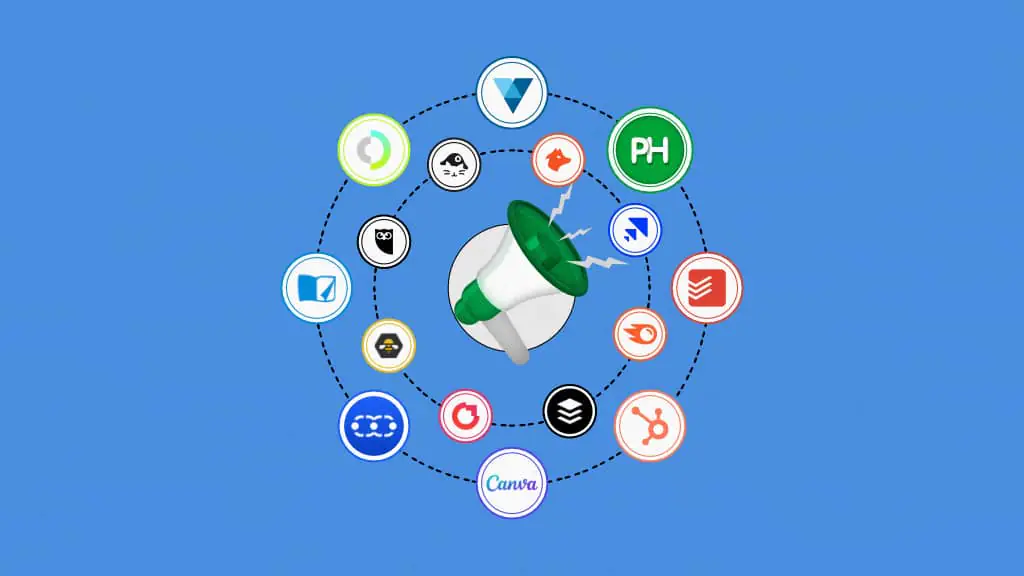
By automating repetitive tasks and workflows, businesses can save time and resources while delivering timely and relevant messages to their audience. Whether it’s sending a welcome email to new subscribers or following up with customers who abandon their shopping carts, automation ensures that no opportunity is missed and that every customer receives the attention they deserve.
Reporting and Analytics to Track Campaign Performance
Finally, omnichannel marketing platforms provide businesses with robust reporting and analytics tools to track campaign performance and measure ROI. From open rates and click-through rates to conversion metrics and revenue attribution, these platforms offer businesses valuable insights into the effectiveness of their marketing efforts.
By analyzing campaign performance data, businesses can identify what’s working and what’s not, allowing them to optimize their marketing strategies for better results. Whether it’s adjusting messaging based on engagement metrics or reallocating budget to high-performing channels, reporting and analytics help businesses make data-driven decisions that drive success.
Factors to Consider When Choosing an Omnichannel Marketing Platform
Selecting the right omnichannel marketing platform is a critical decision for businesses aiming to enhance their marketing efforts and improve customer engagement. With a myriad of options available in the market, it’s essential to consider several factors to ensure that the chosen platform aligns with your business goals and requirements. In this section, we’ll delve into the key factors to consider when choosing an omnichannel marketing platform.
Budget Considerations
Budget considerations play a significant role in the selection of an omnichannel marketing platform. While some platforms offer a range of pricing options, including tiered plans based on features and usage, others may require a significant upfront investment or ongoing subscription fees. It’s essential to assess your budget constraints and determine how much you’re willing to invest in an omnichannel marketing platform.

Additionally, consider the total cost of ownership, including implementation, training, and ongoing support, when evaluating different platforms. While a platform may seem affordable initially, hidden costs can add up over time, impacting your overall budget. Look for platforms that offer transparent pricing and flexible payment options to ensure that you get the most value for your investment.
Scalability and Flexibility
Scalability and flexibility are crucial factors to consider when choosing an omnichannel marketing platform, especially for growing businesses. As your business expands and evolves, your marketing needs may change, requiring a platform that can adapt to your changing requirements.

Look for platforms that offer scalability, allowing you to easily add new features, channels, and users as your business grows. Additionally, consider the flexibility of the platform in terms of customization and integration with other systems. A flexible platform enables you to tailor the solution to meet your specific needs and seamlessly integrate with existing systems and workflows.
Integration with Existing Systems
Integration with existing systems is another critical factor to consider when choosing an omnichannel marketing platform. Businesses often rely on a variety of tools and systems, such as CRM software, eCommerce platforms, and analytics tools, to manage their operations and customer data.

Choose a platform that offers seamless integration with your existing systems to ensure a unified and cohesive experience across all touchpoints. Look for platforms that provide pre-built integrations or robust APIs that enable easy connectivity with third-party systems. By integrating your omnichannel marketing platform with existing systems, you can leverage existing data and workflows to maximize efficiency and effectiveness.
Customer Support and Training
Customer support and training are essential considerations when selecting an omnichannel marketing platform. Implementing a new platform requires time, resources, and expertise, and having access to reliable customer support and training resources can make the process smoother and more successful.

Evaluate the level of customer support offered by the platform provider, including availability, responsiveness, and expertise. Look for platforms that provide comprehensive training materials, tutorials, and resources to help you get up and running quickly and efficiently. Additionally, consider the availability of ongoing support and assistance to address any issues or questions that may arise during implementation and beyond.
Security and Compliance
Security and compliance are paramount when it comes to managing customer data and executing marketing campaigns. With increasing concerns around data privacy and regulations such as GDPR and CCPA, businesses must prioritize security and compliance when choosing an omnichannel marketing platform.

Ensure that the platform complies with industry standards and regulations regarding data protection and privacy. Look for platforms that offer robust security features, such as encryption, access controls, and regular security audits, to safeguard sensitive customer information. Additionally, consider the platform’s track record and reputation for security and compliance to mitigate any potential risks.
Tips for Implementing Omnichannel Marketing Platforms
Implementing omnichannel marketing platforms is a significant undertaking for any business, requiring careful planning, execution, and ongoing optimization. To maximize the effectiveness of your omnichannel marketing efforts and drive business growth, it’s essential to follow best practices and tips for successful implementation. In this section, we’ll explore key tips for implementing omnichannel marketing platforms.
Develop a Clear Strategy and Set Goals
Before implementing an omnichannel marketing platform, it’s crucial to develop a clear strategy and set specific goals for your marketing efforts. Define your target audience, identify key channels and touchpoints, and outline the desired outcomes you hope to achieve through your omnichannel marketing campaigns.

Consider factors such as customer segmentation, personalized messaging, and customer journey mapping to ensure that your strategy aligns with the needs and preferences of your audience. By establishing clear objectives and benchmarks for success, you can measure the effectiveness of your omnichannel marketing efforts and make data-driven decisions to drive results.
Ensure Seamless Integration Across Channels
Integration is a critical aspect of implementing an omnichannel marketing platform, ensuring that your messaging and branding remain consistent across all channels and touchpoints. Choose a platform that offers seamless integration with your existing systems and channels, allowing you to centralize data, streamline workflows, and deliver personalized experiences to your audience.
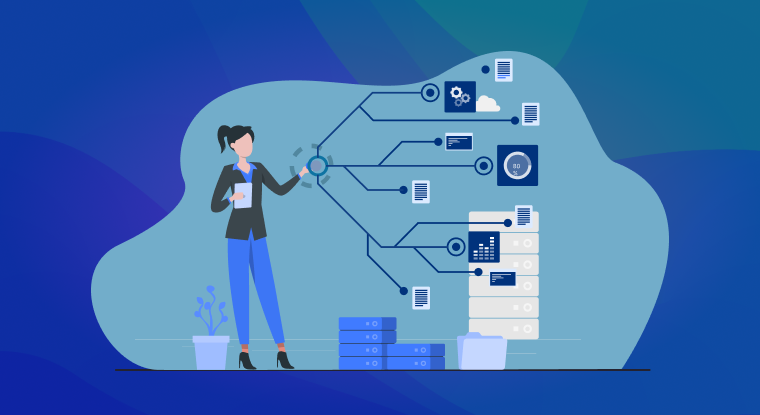
Whether it’s integrating with your CRM system, eCommerce platform, or social media accounts, ensure that your omnichannel marketing platform can seamlessly connect with all relevant systems and channels. This will enable you to leverage customer data effectively, automate marketing workflows, and deliver cohesive experiences that drive engagement and conversion.
Regularly Analyze Data and Optimize Campaigns
Data analysis and optimization are essential components of successful omnichannel marketing campaigns, allowing you to measure performance, identify trends, and make informed decisions to improve results. Regularly analyze data from your omnichannel marketing platform, including campaign metrics, customer behavior, and conversion rates, to gain insights into what’s working and what’s not.

Use A/B testing, segmentation, and personalization techniques to optimize your campaigns for better performance and ROI. Experiment with different messaging, offers, and channel strategies to identify the most effective approaches for engaging your audience and driving desired outcomes.
Provide Training for Your Team
Training is crucial for ensuring that your team can effectively leverage the capabilities of your omnichannel marketing platform and execute successful campaigns. Provide comprehensive training for your marketing team on how to use the platform, including features, best practices, and workflows.
Additionally, consider providing ongoing training and support to keep your team up-to-date with new features, updates, and industry trends. Encourage collaboration and knowledge sharing among team members to foster a culture of continuous learning and improvement.
By investing in training and development, you can empower your team to harness the full potential of your omnichannel marketing platform and drive business growth through strategic and effective marketing campaigns.
Conclusion for list of the best Omnichannel Marketing Platforms
In this comprehensive exploration of omnichannel marketing platforms, we’ve covered a wide range of topics, from understanding the fundamentals of omnichannel marketing to reviewing top platforms and discussing key factors to consider when choosing the right solution for your business. Let’s recap the key points discussed in this blog post and reflect on the importance of selecting the right omnichannel marketing platform for your business, as well as share final thoughts on the future of omnichannel marketing.
Throughout this blog post, we’ve examined the concept of omnichannel marketing and its significance in today’s digital landscape. We’ve explored the benefits of implementing omnichannel marketing strategies, such as increased customer engagement, improved brand loyalty, and higher conversion rates. Additionally, we’ve discussed the various types of omnichannel marketing platforms, including all-in-one solutions, channel-specific platforms, and custom-built solutions, highlighting their features, pros, and cons.
We’ve also reviewed ten leading omnichannel marketing platforms, such as Adobe Experience Cloud, Salesforce Marketing Cloud, HubSpot, SAP Customer Experience (CX), Oracle CX Marketing, IBM Watson Customer Experience Analytics, Google Marketing Platform, Emarsys, Iterable, and Mailchimp. Each platform offers unique features and capabilities to help businesses deliver personalized and cohesive experiences to their customers across multiple channels.
Furthermore, we’ve explored key factors to consider when choosing an omnichannel marketing platform, such as budget considerations, scalability and flexibility, integration with existing systems, customer support and training, and security and compliance. By carefully evaluating these factors, businesses can select a platform that aligns with their goals and requirements, driving success in their omnichannel marketing efforts.
Importance of Choosing the Right Omnichannel Marketing Platform
Choosing the right omnichannel marketing platform is crucial for businesses aiming to succeed in today’s competitive marketplace. The platform you choose will serve as the foundation for your omnichannel marketing strategy, enabling you to streamline marketing efforts, enhance customer engagement, and drive business growth. By selecting a platform that offers seamless integration across channels, robust data analysis and optimization capabilities, and comprehensive support and training, businesses can unlock the full potential of their omnichannel marketing initiatives.
Final Thoughts on the Future of Omnichannel Marketing
As technology continues to evolve and consumer expectations shift, the future of omnichannel marketing is bright and promising. Businesses that embrace omnichannel marketing platforms and adopt a customer-centric approach to marketing will gain a competitive edge and thrive in the digital age. By leveraging data-driven insights, automation tools, and personalized experiences, businesses can create meaningful connections with their customers and build lasting relationships that drive loyalty and advocacy.
In conclusion, omnichannel marketing platforms are essential tools for businesses looking to deliver seamless and personalized experiences to their customers across multiple channels. By understanding the fundamentals of omnichannel marketing, exploring top platforms, and considering key factors when choosing a solution, businesses can position themselves for success and capitalize on the opportunities presented by the future of omnichannel marketing.
If you enjoy our content, please consider subscribing to our newsletter right below so that we can send you the most updated content from Magenest.



